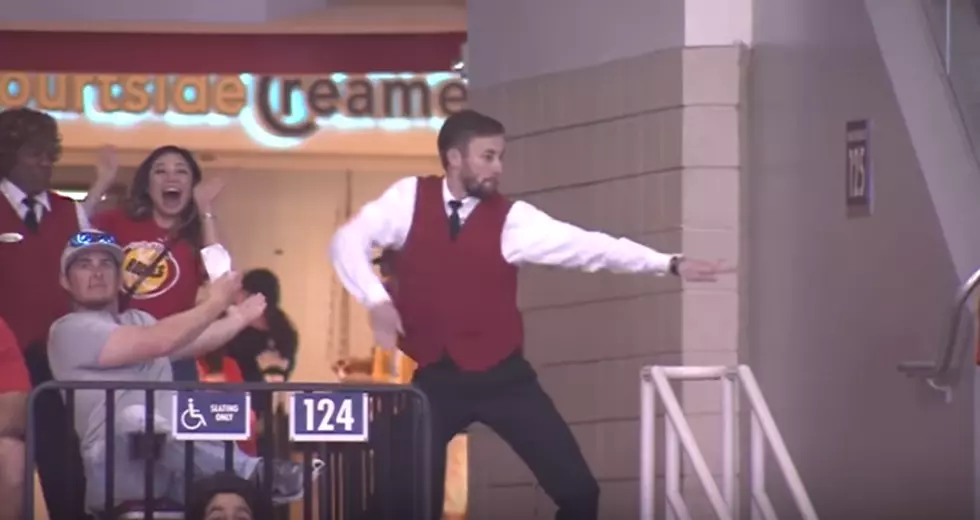
‘You Were Never Really Here’ Review: Joaquin Phoenix Is Riveting in Lynne Ramsay’s Brutal Descent Into PTSD
Lynne Ramsay intimately understands the language of suffering. The Scottish filmmaker’s work (We Need to Talk About Kevin, Morvern Callar) is made up of portraits of broken people; lonely characters desperate to escape the disappointments of their lives and the tragedies that haunt them. Her poetic approach to the myriad ways humans ache makes You Were Never Really Here, a brutal, blood-soaked thriller about a tormented contract killer, perfectly apt material for her first feature in seven years. It’s a riveting, disorienting gut-punch of a movie, and features some of Joaquin Phoenix’s most startling work to date — but it also leaves something to be desired.
Adapted from the Jonathan Ames novel of the same name, Ramsay’s film earned her the Best Screenplay prize at last year’s Cannes (tied with Yorgos Lanthimos‘ The Killing of a Sacred Deer) and Phoenix the Best Actor prize. A hired gun who rescues young female kidnap victims, Phoenix’s Joe is pot-bellied, his arms and back covered in thick, raised scars. With raggedy hair and an unkempt beard, he looks like a weary homeless man on the verge of collapse. And yet, he’s a terrifying and lethal force you wouldn’t dare cross. Phoenix presents him as a man brimming with complexity, both a ruthless brute and a caring son who can switch off those sadistic sensibilities to playfully sing a nursery rhyme with his aging mother (Judith Roberts). After returning home from a job, he soon receives his next assignment: finding Nina Votto (Ekaterina Samsonov), the missing daughter of a New York State Senator, who was last seen at a known sex trafficking spot.
You Were Never Really Here is a lot like a modern Taxi Driver, but Ramsay’s film is more interested in examining the darkness festering within her hero’s mind. Joe’s mission to rescue Nina is continually interrupted by his own erratic episodes of PTSD, and we soon realize his present vocation hardly rivals the brutality of his past. Ramsay jolts us from Joe’s rescue missions to painful flashbacks – images of a young, terrified Joe hiding in a closet, girls tied-up in the back of a truck, a child’s death in a desert. From that, we’re able to gather that Joe is likely ex-military and ex-FBI; he’s made a life out of saving young women from the hands of violent men, perhaps as a reaction to his own abusive childhood. But no matter how many girls he saves, Joe is still seeking something, still killing in search of release. Is Nina the one to bring him absolution, or will the killing never cease?
What makes Ramsay such a brilliant filmmaker is her ability to evoke the inner torment and sorrow of her characters by saying and showing so little — in her films, the characters (and thus, we) are often reacting to what we don’t see in the frame, particularly with how she presents violence. In You Were Never Really Here, her expert framing and use of sound — the whispers that open the film play a significant thematic role in Joe’s journey —along with Tom Townend’s harsh, low-it cinematography, and a deranged, clanging Jonny Greenwood score, turn the film into a nightmare of non-stop, blistering anxiety. And Phoenix elevates that prickly panic further, translating Joe’s distressed psyche across his trembling face and body; in one fantastic moment, Joe flashes a menacing smirk as he picks up his weapon of choice, a hammer, which becomes all the more disturbing when a similar hammer shows up in his flashbacks. It’s a fascinating case study of a man losing himself to the seduction of violence while caught in the whirlpool of trauma’s lasting tentacles.
As much as the film mesmerized me, though, it also left me frustrated by the end. While much of Ramsay’s work is excellent at refusing to spell anything out for us, You Were Never Really Here’s loose, elliptical structure doesn’t always work. Ramsay offers breadcrumbs of information we’re left to piece together on our own, and while that suits the material in some cases — one could argue those sporadic flashbacks and unexplained gaps mirror the mind of someone remembering the blocked-out ghosts of their past — it makes the narrative seem too obtuse in some places and messily cobbled together in others. Joe comes to sudden conclusions about the Nina case that are more confusing than convincing; a key character (played by Alessandro Nivola) appears out of nowhere in the third act, and a climactic set piece, which should be devastating, feels deflated. The film is a short 89 minutes, and while I’m always in favor of succinct runtimes, I left You Were Never Really Here wanting more, and feeling pushed too far away from a character the first two-thirds made me feel deeply connected to.
You Were Never Really Here isn’t an entirely satisfying experience, and may benefit from multiple viewings, but it’s still a masterful exploration of the nasty ways repressed trauma can resurface, and how violence can become a means of excising the bruises of the past. It’s not as seamless as Ramsay’s past work, but like those films, it proves she’s not afraid to untangle the uglier, painful aspects of the human condition and find the poetry within.
More From KLTD-FM










